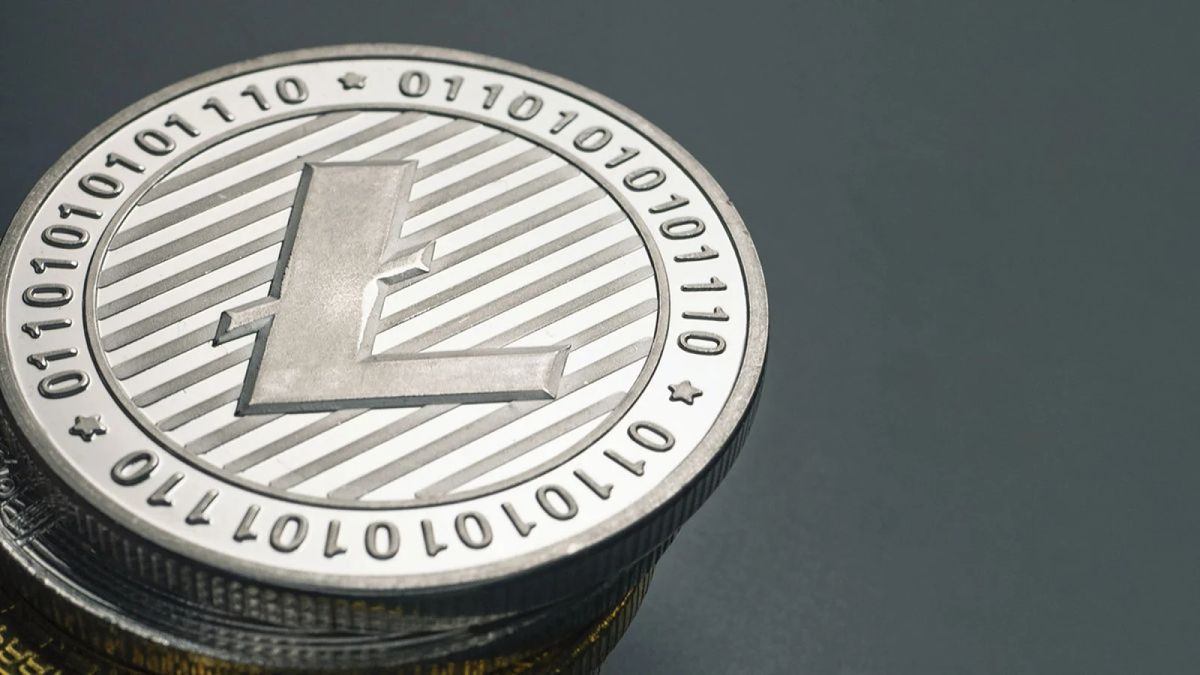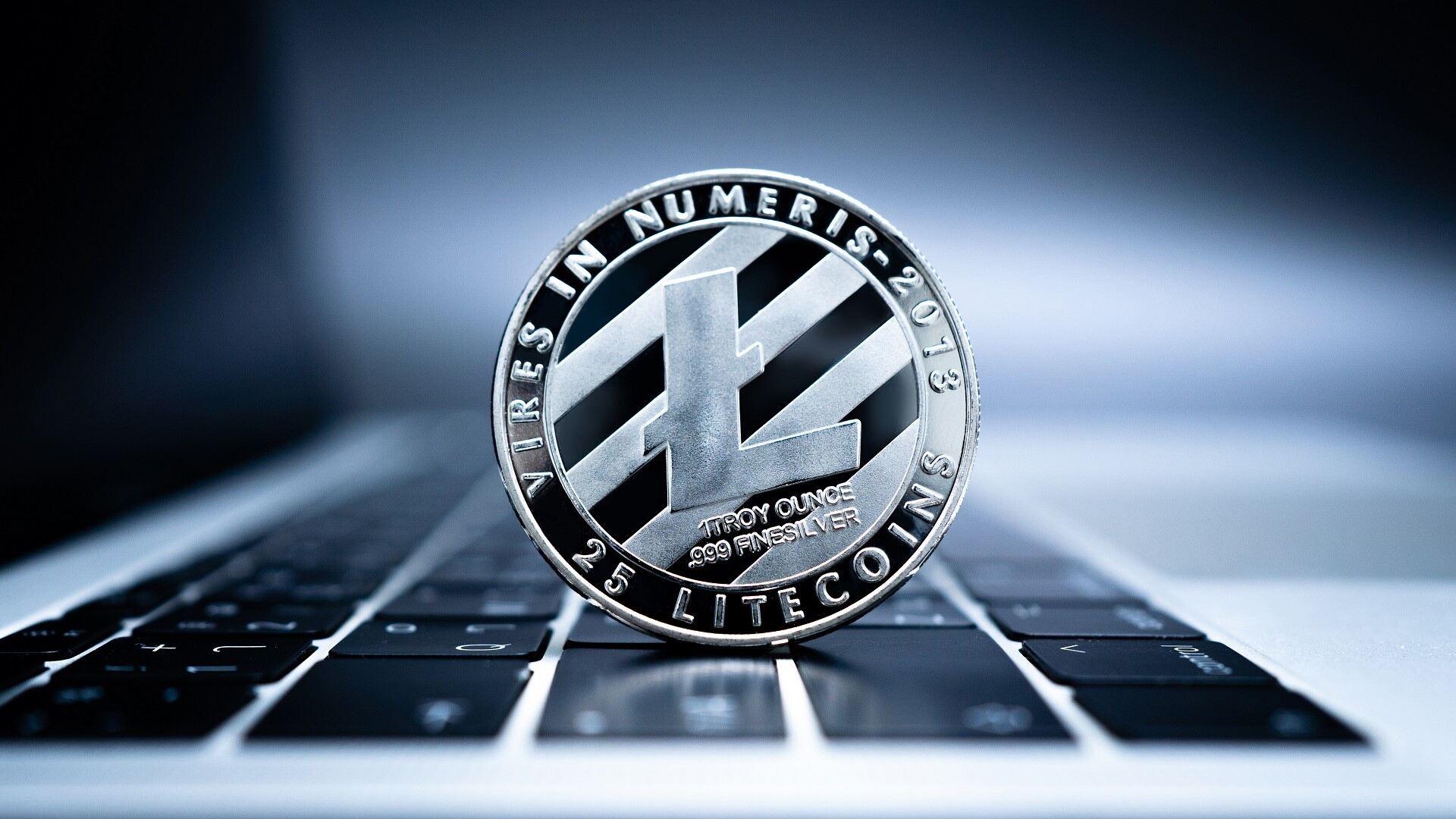Introduction
When it comes to trading cryptocurrencies, Litecoin and Bitcoin are among the most popular options available. Both offer unique features and potential for growth, making them attractive investments for digital currency enthusiasts.
However, deciding when to trade Litecoin for Bitcoin or cash can be a challenging task. With fluctuating market values and evolving trends, it’s crucial to have a clear understanding of the factors to consider in order to make informed trading decisions.
This article aims to guide you in determining the opportune moments to trade Litecoin for Bitcoin or cash. By examining the factors to consider and weighing the advantages and potential risks associated with each option, you will be better equipped to navigate the cryptocurrency market.
Whether you are a seasoned cryptocurrency trader or a beginner exploring these digital assets, understanding the right time to trade Litecoin for Bitcoin or cash is essential for maximizing your investment returns.
Examining the market trends, analyzing key indicators, and evaluating your individual financial goals and risk tolerance are all vital components in making well-informed trading decisions. Let’s dive into the details and explore the factors to consider when deciding between Litecoin and Bitcoin or cash.
How to Determine When to Trade Litecoin for Bitcoin
Timing plays a crucial role in successful cryptocurrency trading. As a Litecoin holder, you may find yourself contemplating when to trade Litecoin for Bitcoin. Here are some key factors to consider when determining the right time:
- Market Analysis: Keeping a close eye on the market is essential. Analyze the price trends of both Litecoin and Bitcoin, study historical data, and stay updated with the latest news and events that may impact their value. Look for patterns and indicators that suggest a favorable time to make the trade.
- Market Volatility: Cryptocurrencies are infamous for their volatility. Monitor the volatility of both Litecoin and Bitcoin. If the market is experiencing significant fluctuations, it may present an opportunity for trading. However, keep in mind that high volatility also amplifies risk, so proceed with caution.
- Comparative Performance: Compare the performance of Litecoin and Bitcoin over time. Evaluate factors such as price movements, market capitalization, and trading volumes. If Bitcoin is consistently outperforming Litecoin, it might indicate a suitable time to make the trade and benefit from Bitcoin’s upward momentum.
- Market Sentiment: Pay attention to market sentiment and investor behavior. Follow reputable cryptocurrency news sources, forums, and social media platforms to gauge the sentiment surrounding Litecoin and Bitcoin. Positive news, endorsements, and increased investor enthusiasm can influence the demand and subsequently impact the price.
- Trading Volume: Consider the trading volume of both Litecoin and Bitcoin. Higher trading volumes often indicate greater liquidity and easier execution of trades. If Litecoin’s trading volume is significantly higher than Bitcoin’s or vice versa, it may suggest an opportune time to make the trade.
Remember, timing the market perfectly is challenging, if not impossible. It’s crucial to analyze these factors and use them as a guide, but always remember to exercise caution, manage your risk, and make decisions in alignment with your investment goals and risk tolerance.
Factors to Consider when Deciding between Bitcoin and Cash
As a Litecoin trader, another important decision you may face is whether to trade your Litecoin for Bitcoin or cash. Here are some crucial factors to consider when making this decision:
- Market Stability: Assess the stability of the cryptocurrency market. Bitcoin has been around longer than Litecoin and has a more established reputation. If you prefer a more stable investment option, trading for cash might be a safer bet. However, if you believe in the long-term potential of cryptocurrencies, especially Bitcoin, trading for Bitcoin may offer higher growth opportunities.
- Future Potential: Evaluate the growth potential of Bitcoin and cash. Bitcoin is often considered the digital gold and has experienced significant growth over the years. On the other hand, cash provides immediate liquidity and stability. Consider your investment goals and risk appetite to determine which asset aligns better with your long-term strategy.
- Personal Financial Needs: Assess your personal financial needs and priorities. If you require immediate access to funds for specific expenses, trading for cash might be the better option. However, if you have a longer-term investment horizon and are comfortable with the volatility of cryptocurrencies, trading for Bitcoin may provide better potential returns over time.
- Transaction Costs: Take into account the transaction costs associated with trading Litecoin for Bitcoin or cash. Bitcoin transactions typically involve network fees, while cash transactions may have fees associated with the withdrawal or conversion process. Consider the costs involved and compare them to the potential gains to make an informed decision.
- Regulatory Environment: Evaluate the regulatory environment surrounding cryptocurrencies and traditional cash. Cryptocurrency regulations can vary significantly between countries, and changes in regulations can have an impact on the market. Ensure you are aware of the legal implications and potential risks involved in trading for either Bitcoin or cash.
Ultimately, the decision between trading Litecoin for Bitcoin or cash depends on your investment objectives, risk tolerance, and personal circumstances. It may be beneficial to diversify your portfolio by holding both Bitcoin and cash, as each has its own advantages and disadvantages.
Advantages of Trading Litecoin for Bitcoin
When considering whether to trade your Litecoin for Bitcoin, there are several advantages to keep in mind:
- Higher Growth Potential: Bitcoin has a longer track record and a larger market cap compared to Litecoin. As a result, Bitcoin has shown greater growth potential, making it an appealing option for traders seeking higher returns on their investment.
- Increasing Adoption: Bitcoin has gained widespread recognition and acceptance as a digital currency worldwide. Many businesses, including major retailers and online platforms, now accept Bitcoin as a form of payment. This increasing adoption further solidifies Bitcoin’s position as a valuable asset.
- Liquidity and Market Accessibility: Bitcoin is one of the most liquid cryptocurrencies, meaning it can be easily bought and sold. The high trading volume and market accessibility of Bitcoin make it convenient for traders to enter and exit positions quickly, providing flexibility in their trading strategies.
- Store of Value: Bitcoin is often referred to as “digital gold” due to its limited supply and its perceived ability to hold value over time. Some investors see Bitcoin as a hedge against inflation and a potential store of value in the long term.
- Network Effects: Bitcoin’s extensive network effects contribute to its value. The more users and merchants that adopt Bitcoin, the stronger its network becomes, further securing its position as the leading cryptocurrency.
These advantages make Bitcoin an attractive option for traders looking to maximize their investment potential. However, it is important to note that Bitcoin’s price volatility and regulatory uncertainties are still factors to consider when deciding whether to trade Litecoin for Bitcoin.
Advantages of Trading Litecoin for Cash
Trading your Litecoin for cash offers several advantages that may suit certain investment strategies and personal circumstances. Here are some key advantages to consider:
- Immediate Liquidity: Trading Litecoin for cash provides immediate access to liquid funds, which can be useful for covering expenses, emergencies, or other financial needs that require immediate access to cash.
- Stability and Reduced Volatility: Cash is generally considered more stable and less volatile than cryptocurrencies like Litecoin and Bitcoin. If you prefer to minimize exposure to market fluctuations and reduce the potential risks associated with cryptocurrency investments, trading for cash can provide greater stability.
- Simplicity and Ease of Use: Cash transactions are straightforward and widely accepted. Using cash for transactions tends to be more familiar and convenient for many individuals, requiring minimal technical knowledge or infrastructure.
- Fiat Currency Stability: Unlike cryptocurrencies, which can experience significant price fluctuations, fiat currencies are typically stable and backed by governments. This stability can provide peace of mind for those who prefer a more predictable financial environment.
- Regulatory Compliance: Transacting in cash often involves fewer regulatory compliance concerns compared to cryptocurrencies. By trading Litecoin for cash, you avoid potential legal and regulatory complexities associated with cryptocurrencies in your jurisdiction.
Trading Litecoin for cash can be a suitable option for individuals who prioritize stability, liquidity, and simplicity. It allows you to maintain exposure to traditional financial systems and can be a practical choice for those who need immediate access to funds or want to reduce exposure to cryptocurrency market risks.
However, it’s important to carefully weigh the advantages and disadvantages of trading Litecoin for cash based on your own financial goals, risk tolerance, and long-term investment strategy.
Potential Risks and Concerns when Trading Litecoin for Bitcoin
While trading Litecoin for Bitcoin can offer various advantages, it’s essential to be aware of the potential risks and concerns involved in this type of transaction. Consider the following factors before making a decision:
- Price Volatility: Both Litecoin and Bitcoin are known for their price volatility. Bitcoin’s value can fluctuate dramatically in short periods, which can lead to significant gains or losses. The unpredictable nature of cryptocurrency markets means that trading Litecoin for Bitcoin comes with inherent risks.
- Market Manipulation: The cryptocurrency market is susceptible to market manipulation and fraudulent activities. It’s crucial to be cautious of pump-and-dump schemes or market manipulation tactics that aim to deceive traders. Conduct thorough research and ensure you are trading on reputable platforms to mitigate these risks.
- Regulatory Uncertainty: The regulatory landscape surrounding cryptocurrencies can be complex and constantly evolving. Changes in regulations or government actions can have a significant impact on the value and legality of Bitcoin holdings. Stay informed about regulatory developments to avoid any potential legal or financial complications.
- Security Concerns: Cryptocurrencies are stored in digital wallets, and the security of these wallets is critical. Ensure you take appropriate security measures, such as using hardware wallets or secure online wallets, to protect your Bitcoin holdings from potential hacks or theft.
- Liquidity Issues: Although Bitcoin is generally more liquid than Litecoin, there can still be liquidity issues, especially during volatile market conditions. It’s important to consider the liquidity of the exchange or platform you plan to use for trading Litecoin for Bitcoin to ensure smooth execution of your trades.
Trading Litecoin for Bitcoin involves inherent risks, and it’s important to carefully evaluate these risks against your risk tolerance and investment goals. Stay informed, diversify your portfolio, and only invest what you can afford to lose.
Potential Risks and Concerns when Trading Litecoin for Cash
When deciding to trade your Litecoin for cash, it is crucial to be aware of the potential risks and concerns associated with this type of transaction. Consider the following factors before making a decision:
- Limited Growth Potential: Unlike cryptocurrencies like Litecoin and Bitcoin, which have shown significant growth over time, cash typically does not offer the same potential for high returns. If you choose to trade Litecoin for cash, you may miss out on the potential upside of holding onto digital assets with a higher growth potential.
- Inflation Risk: Holding cash for an extended period exposes you to inflation risk. Over time, the value of cash can erode due to inflation, potentially reducing your purchasing power. This is especially important to consider if you anticipate holding a significant amount of cash for an extended period.
- Opportunity Cost: By choosing to trade your Litecoin for cash, you may be missing out on potential investment opportunities in other asset classes, such as stocks, bonds, or real estate. Consider the potential opportunity cost of holding cash instead of diversifying your investment portfolio.
- Sovereign Risk: Cash is subject to sovereign risk, meaning its value can be influenced by political instability, economic crises, or government actions. Changes in government policies or financial regulations can impact the value and stability of the cash you hold. Stay informed about the financial climate and stability of the currency you plan to trade your Litecoin for.
- Transaction Complexity: Converting Litecoin to cash may involve multiple steps and fees, depending on the available conversion platforms and services. Be aware of any transaction fees, exchange rates, or withdrawal restrictions that may apply when converting your Litecoin to cash.
Trading Litecoin for cash can provide immediate liquidity and stability, but it is essential to carefully weigh the potential risks and concerns against your investment goals and risk tolerance. Consider diversifying your holdings and exploring other investment opportunities to mitigate some of these risks.
Conclusion
Deciding when to trade Litecoin for Bitcoin or cash requires careful consideration of various factors and risks. Understanding the advantages and disadvantages of each option can help you make informed decisions aligned with your investment goals and risk tolerance.
When it comes to trading Litecoin for Bitcoin, you can take advantage of Bitcoin’s higher growth potential, increasing adoption, liquidity, network effects, and its perception as a store of value. However, you must also be mindful of Bitcoin’s price volatility, market manipulation risks, regulatory uncertainty, and security concerns.
On the other hand, trading Litecoin for cash offers immediate liquidity, stability, simplicity, reduced volatility, and fewer regulatory compliance concerns. However, you need to consider the limited growth potential, inflation risk, missed investment opportunities, sovereign risk, and transaction complexities associated with cash holdings.
Ultimately, the decision to trade Litecoin for Bitcoin or cash should be based on your individual circumstances, investment goals, and risk tolerance. It is advisable to diversify your portfolio, keeping in mind that cryptocurrency investments should only be made with funds that you can afford to lose.
Stay updated with market trends, conduct thorough research, and consider seeking professional advice when necessary. Remember that timing the market perfectly is difficult, if not impossible, and that the cryptocurrency market can be highly unpredictable.
By carefully weighing the factors, risks, and advantages, you can make well-informed decisions and navigate the cryptocurrency market with greater confidence, increasing the likelihood of achieving your investment objectives.

























